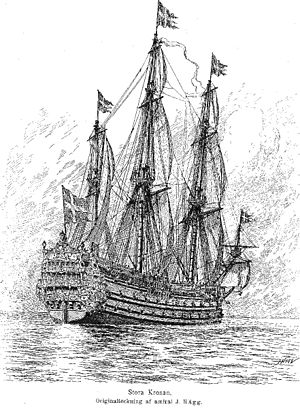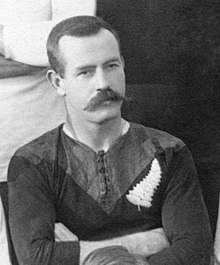Portal:History
The History Portal
History (derived from Ancient Greek ἱστορία (historía) 'inquiry; knowledge acquired by investigation') is the systematic study and documentation of the past. History is an academic discipline which uses a narrative to describe, examine, question, and analyse past events, and investigate their patterns of cause and effect. Historians debate which narrative best explains an event, as well as the significance of different causes and effects. Historians debate the nature of history as an end in itself, and its usefulness in giving perspective on the problems of the present.
The period of events before the invention of writing systems is considered prehistory. "History" is an umbrella term comprising past events as well as the memory, discovery, collection, organization, presentation, and interpretation of these events. Historians seek knowledge of the past using historical sources such as written documents, oral accounts or traditional oral histories, art and material artefacts, and ecological markers.
Stories common to a particular culture, but not supported by external sources (such as the tales surrounding King Arthur), are usually classified as cultural heritage or legends. History differs from myth in that it is supported by verifiable evidence. However, ancient cultural influences have helped create variant interpretations of the nature of history, which have evolved over the centuries and continue to change today. The modern study of history is wide-ranging, and includes the study of specific regions and certain topical or thematic elements of historical investigation. History is taught as a part of primary and secondary education, and the academic study of history is a major discipline in universities.
Herodotus, a 5th-century BCE Greek historian, is often considered the "father of history", as one of the first historians in the Western tradition, though he has been criticized as the "father of lies". Along with his contemporary Thucydides, he helped form the foundations for the modern study of past events and societies. Their works continue to be read today, and the gap between the culture-focused Herodotus and the military-focused Thucydides remains a point of contention or approach in modern historical writing. In East Asia a state chronicle, the Spring and Autumn Annals, was reputed to date from as early as 722 BCE, though only 2nd-century BCE texts have survived. The title "father of history" has also been attributed, in their respective societies, to Sima Qian, Ibn Khaldun, and Kenneth Dike. (Full article...)
Featured picture
Did you know (auto generated)

- ... that Veto, inspired by the history of the Polish–Lithuanian Commonwealth, is considered to be the first Polish collectible card game?
- ... that the leak of the upcoming Grand Theft Auto game was described as one of the biggest leaks in video game history?
- ... that British architect Diane Haigh transformed one historic building into an art gallery and another into a hospice?
- ... that The Fader praised "Montgomery Brawl" as "a hilarious recap" of the brawl and a "song a piece of history deserves"?
- ... that Group A of the 2006 FIFA World Cup featured the highest-scoring opening game in World Cup history since the competition began using a single match opening format?
- ... that What Hath God Wrought, the 2007 history of Jacksonian America written by Daniel Walker Howe, is dedicated to Andrew Jackson's "political nemesis" John Quincy Adams?

Jesus (c. 6 to 4 BC – AD 30 or 33), also referred to as Jesus Christ, Jesus of Nazareth, and many other names and titles, was a 1st-century Jewish preacher and religious leader. He is the central figure of Christianity, the world's largest religion. Most Christian denominations believe Jesus to be the incarnation of God the Son and the awaited messiah, or Christ, a descendant from the Davidic line that is prophesied in the Old Testament. Virtually all modern scholars of antiquity agree that Jesus existed historically. Accounts of Jesus's life are contained in the Gospels, especially the four canonical Gospels in the New Testament. Academic research has yielded various views on the historical reliability of the Gospels and how closely they reflect the historical Jesus.
Jesus was circumcised at eight days old, was baptized by John the Baptist as a young adult, and after 40 days and nights of fasting in the wilderness, began his own ministry. He was an itinerant teacher who interpreted the law of God with divine authority and was often referred to as "rabbi". Jesus often debated with his fellow Jews on how to best follow God, engaged in healings, taught in parables, and gathered followers, among whom twelve were appointed as his chosen apostles. He was arrested in Jerusalem and tried by the Jewish authorities, turned over to the Roman government, and crucified on the order of Pontius Pilate, the Roman prefect of Judaea. After his death, his followers became convinced that he rose from the dead, and following his ascension, the community they formed eventually became the early Christian Church that expanded as a worldwide movement. It is hypothesized that accounts of his teachings and life were initially conserved by oral transmission, which was the source of the written Gospels. (Full article...)
On this day
January 7: Christmas (Eastern Christianity; Julian calendar); Victory over Genocide Day in Cambodia; Laba Festival in China (2025)
- 1797 – The Italian tricolour was first adopted as an official flag by the government of the Cispadane Republic.
- 1904 – The Marconi International Marine Communication Company specified CQD (audio featured) as the distress signal to be used by its operators.
- 1939 – French physicist Marguerite Perey identified francium, the last element to be discovered in nature rather than by synthesis.
- 1979 – The People's Army of Vietnam captured Phnom Penh, marking the end of large-scale fighting in the Cambodian–Vietnamese War.
- 2020 – After 253 days without an operational government, a second round of investiture votes produced Spain's first coalition government since the Second Republic.
- Francis Poulenc (b. 1899)
- Melly Goeslaw (b. 1974)
- Richard Hamming (d. 1998)
- Run Run Shaw (d. 2014)
Selected quote
What is the use of living, if it be not to strive for noble causes and to make this muddled world a better place for those who will live in it after we are gone?
— Winston Churchill, British statesman
Related portals
More Did you know...
- ... that in 1898, the United States government annexed the Kingdom of Hawaii despite protestation from Queen Liliuokalani (pictured)?
- ... that Jean Thurel was a soldier in the French Régiment de Touraine for more than 75 years?
- ... that the severed head of Julia Martha Thomas — murdered, boiled and dismembered by her maid in 1879 — was found next door to Sir David Attenborough's house in 2010?
- ... that the 18th-century Indian automaton Tipu's Tiger shows a near life-size European being mauled by a tiger, and emits wails and grunts as well as containing a pipe organ?
- ... that Svið, a traditional Icelandic dish, consists of a sheep's head that has been cut in half, singed, and boiled with the brain removed?
- ... that, despite overseeing the construction of the crematoria and gas chambers at Auschwitz, what specifically shocked SS-Obersturmführer Robert Mulka at the camp was his colleagues' dress sense?
- ... that Tsar Alexander II of Russia had a special crystal bottle of Roederer champagne made for the Three Emperors Dinner in 1867 so that he could admire the bubbles?
- ... that the Gudea cylinders are the longest literary composition ever found in the Sumerian language?
Topics
Categories

History • By period • By region • By topic • By ethnic group • Historiography • Archaeology • Books • Maps • Images • Magazines • Organizations • Fictional • Museums • Pseudohistory • Stubs • Timelines • Chronology • People • Wikipedia historians
WikiProjects
![]() WikiProject History •
Ancient Near East • Australian History • Classical Greece and Rome • Dacia • Former countries • History of Canada • Chinese history • European history • Heraldry and vexillology • Indian history • Jewish history • Medieval Scotland • Mesoamerica • Military history • Middle Ages • History of Science
WikiProject History •
Ancient Near East • Australian History • Classical Greece and Rome • Dacia • Former countries • History of Canada • Chinese history • European history • Heraldry and vexillology • Indian history • Jewish history • Medieval Scotland • Mesoamerica • Military history • Middle Ages • History of Science
WikiProject Time • Days of the Year • Years
WikiProject Biography • Composers • Political figures • Saints • United States Presidents
Things you can do
 |
Here are some tasks awaiting attention:
|
Associated Wikimedia
The following Wikimedia Foundation sister projects provide more on this subject:
-
Commons
Free media repository -
Wikibooks
Free textbooks and manuals -
Wikidata
Free knowledge base -
Wikinews
Free-content news -
Wikiquote
Collection of quotations -
Wikisource
Free-content library -
Wikiversity
Free learning tools -
Wiktionary
Dictionary and thesaurus


![Image 1 Caxias in 1878 Luís Alves de Lima e Silva, Duke of Caxias (pronounced [kaˈʃi.ɐs]; 25 August 1803 – 7 May 1880), nicknamed "the Peacemaker" and "the Iron Duke", was an army officer, politician and monarchist of the Empire of Brazil. Like his father and uncles, Caxias pursued a military career. In 1823 he fought as a young officer in the Brazilian War for Independence against Portugal, then spent three years in Brazil's southernmost province, Cisplatina, as the government unsuccessfully resisted that province's secession in the Cisplatine War. Though his own father and uncles renounced Emperor Dom Pedro I during the protests of 1831, Caxias remained loyal. Pedro I abdicated in favor of his young son Dom Pedro II, whom Caxias instructed in swordsmanship and horsemanship and eventually befriended. During Pedro II's minority the governing regency faced countless rebellions throughout the country. Again breaking with his father and other relatives sympathetic to the rebels, from 1839 to 1845 Caxias commanded loyalist forces suppressing such uprisings as the Balaiada, the Liberal rebellions of 1842 and the Ragamuffin War. In 1851, under his command, the Brazilian army prevailed against the Argentine Confederation in the Platine War; a decade later Caxias, as army marshal (the army's highest rank), led Brazilian forces to victory in the Paraguayan War. As a reward he was raised to the titled nobility, becoming successively a baron, count, and marquis, finally becoming the only person created duke during Pedro II's 58-year reign. (Full article...)](http://upload.wikimedia.org/wikipedia/en/d/d2/Blank.png)



















































